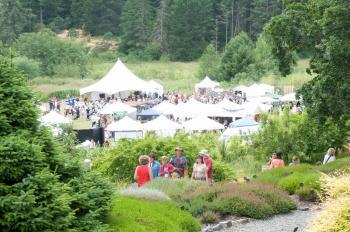Going Green the Way of the Future?
While some small “green” businesses have been around for decades, it was only about 15 years ago...

Exhibitors and attendees at Organic Islands Festival at Glendale Gardens in Victoria. The largest outdoor green festival in Canada, Organic Islands provides a venue for green businesses to showcase their products. Shari Macdonald

Joan Delaney
Senior Editor, Canadian Edition
|Updated:





